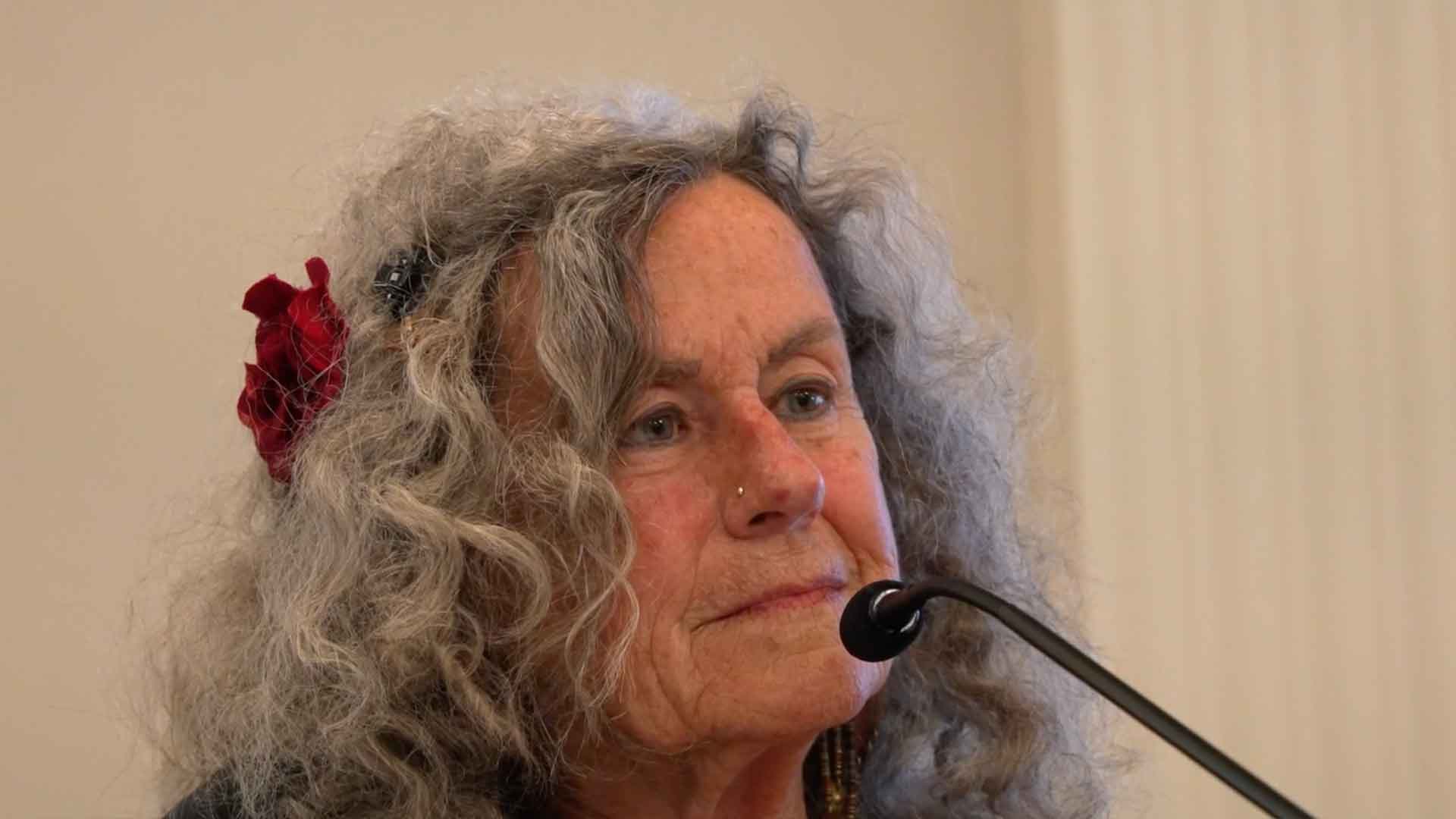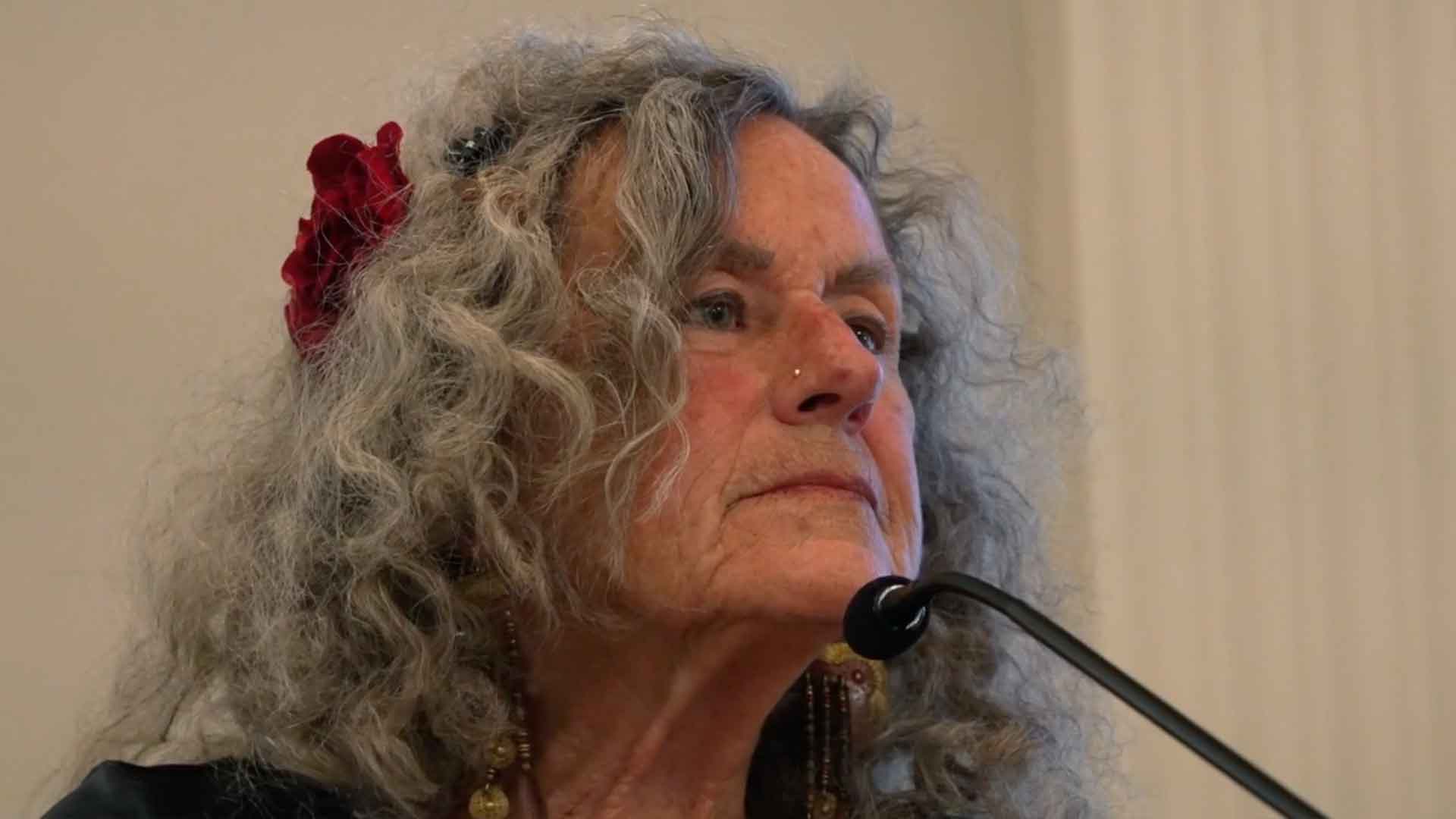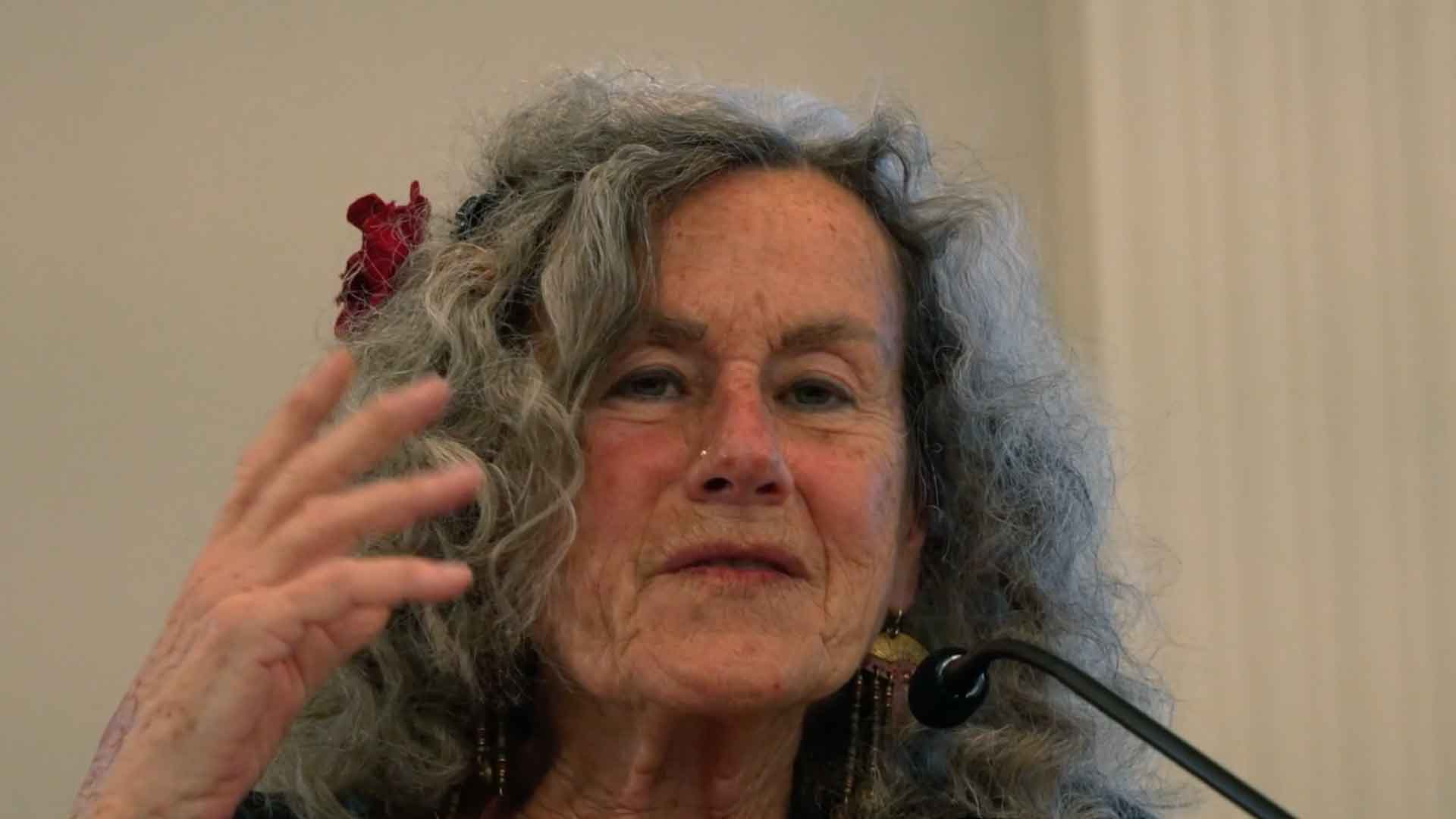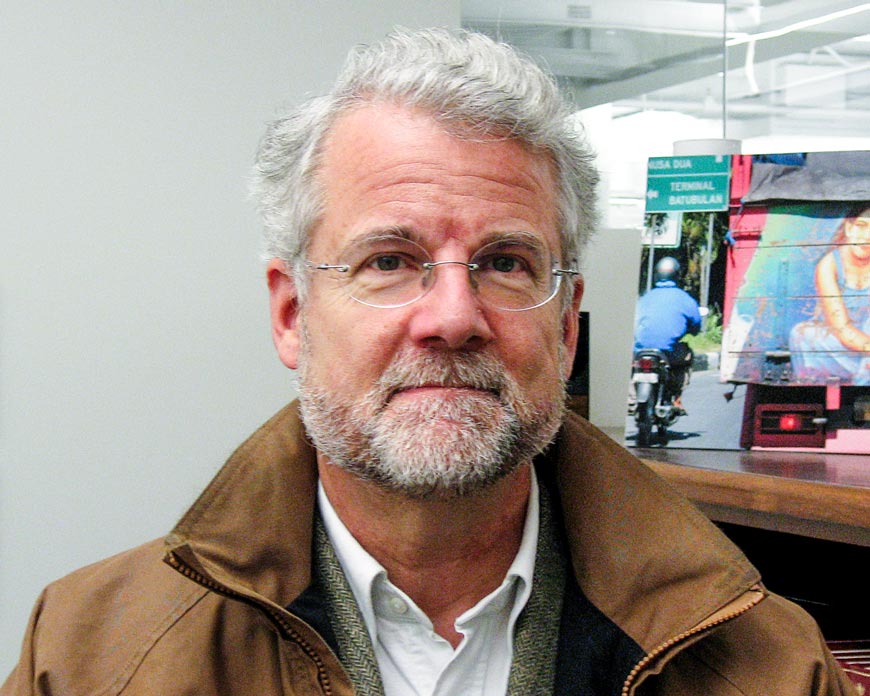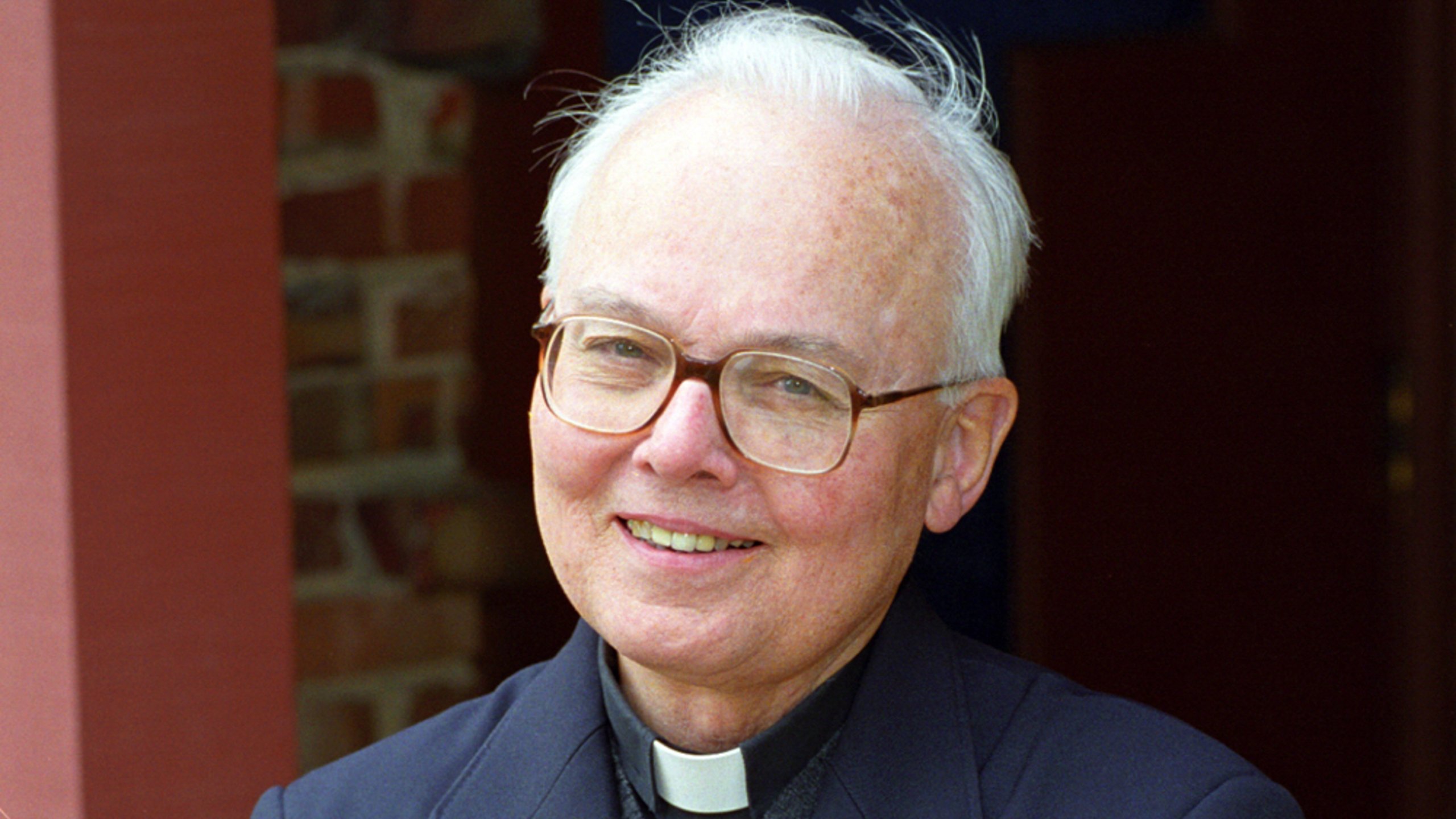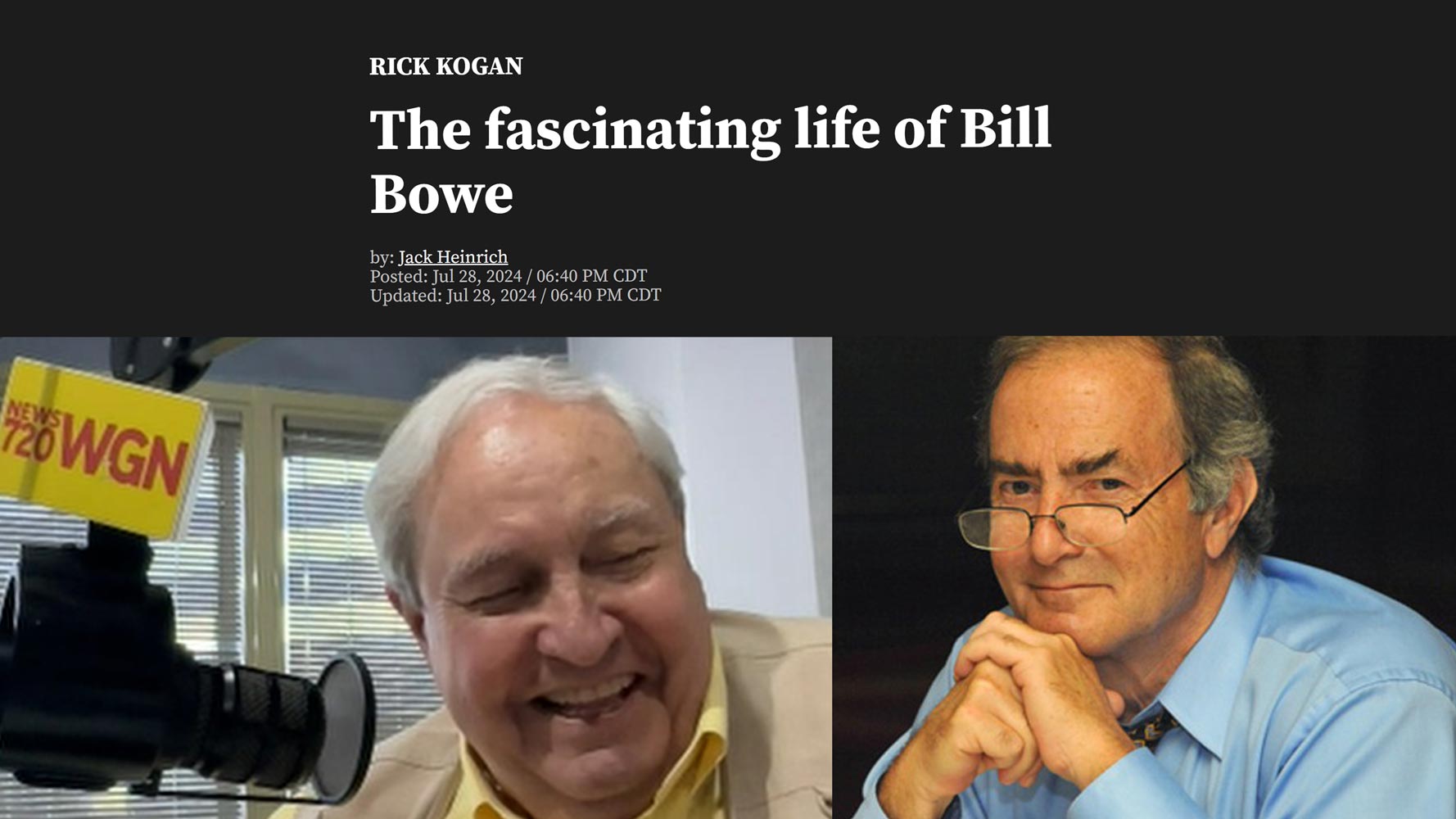Editor’s Note: Bernardine Dohrn’s remarks were made on April 29, 2022, at the first of two dinners associated with the University of Chicago Law School’s Class of 1967’s 55th Reunion.
Following a few bad puns on the meme of the day, Disinformation, I introduced my classmate John Elson, a Professor Emeritus at Northwestern University Law School. Before going on to introduce our main speaker, John discussed his colleague Bernardine Dohrn’s clinical work over many years at Northwestern Law School’s Children and Family Justice Center. Bernardine herself had discussed her work at the Center in a 2011 article in the Northwestern Journal of Law and Social Policy, Seize the Little Moment: Justice for the Child.
In her remarks, Bernardine talked about notable classmates she remembered from her days in the Class of 1967, together with memorable University of Chicago Law School faculty members of the time. She also talked about her political awakening and devotion to the anti-war politics of the 1960s and early ’70s, her arrival on the FBI’s Ten-Most-Wanted List, and her acquittal of federal criminal charges on grounds of misconduct by the government. At the conclusion of her remarks, she took questions from her classmates.
Here you will find several excerpts from Bernardine’s remarks reflecting on parts of her earlier days of political activism.
For younger people and those unfamiliar with Bernardine and her husband’s notoriety, there was much attention paid to her and Bill Ayers in the New York Times and the Wall Street Journal when publication of his memoir of their SDS and fugitive days happened to coincide with the September 11, 2001 foreign terrorist attacks. As you can see from this 9/11 reportage of the day, those horrific events in New York and Washington, D.C. brought immediately to mind the domestic terrorist bombings organized and claimed by the Weathermen in the early 1970s: New York City’s Police Headquarters (1970), the U.S. Capitol Building (1971), and the Pentagon (1972). In 2008, the Chicago Tribune weighed in on the origins of Bernardine’s later career path, and in October 2019, the 50th anniversary of the SDS Days of Rage in Chicago, the public television station WTTW took time in a special piece to remember, “Chicago in the late 1960s was a battlefield.” This era is also chronicled in an article on the Weather Underground in the Encyclopaedia Britannica.
In 2008, when the Chicago Tribune made an inquiry about Bernardine’s being hired to teach at Northwestern University’s law school without having a law license, the University said in a press release, “While many would take issue with views Ms. Dohrn espoused during the 1960s, her career at the law school is an example of a person’s ability to make a difference in the legal system.” Bernardine concluded her remarks on a similar note, “Maybe the most improbable thing about this whole story is me ending up being at a law school and having a wonderful 20-year run.”
With the wide range of political views in the class, I’m sure there were those in the audience who concurred with some of Bernardine’s views, while others no doubt missed hearing any clear regrets and perhaps found her choice of words reminiscent of Nixonian equivocations like, “Mistakes were made.” and “I take the responsibility, but not the blame.” Other Watergate afficionados could have regarded her answers to classmates questions as a “limited, modified hangout.” Whatever people thought, she was listened to in a civil manner throughout.
With her first law school reunion finally behind her, I’m hoping I’ll now get a response to this Dear Bernardine Letter that went unanswered in 1969. It was a failed attempt to solicit a contribution from her to the University of Chicago Law School. Oddly enough, at the time I was in the Army at the Pentagon focused on the same anti-war demonstrations in Washington, D.C. that Bernardine was participating in. I have my own recollections of that time here.
Video Snippets and Transcripts
One of the questions Bernadine Dohrn addressed was whether she thought the self-righteous way in which her goals were pursued produced a populist blowback that’s tearing apart our country today
In answering a question about what influences brought about the trajectory of her life, Bernardine alludes to the consequences of her action.
David Minge, a former member of the U.S. House of Representatives from Minnesota, asked his classmate about leaving her life as a fugitive.



